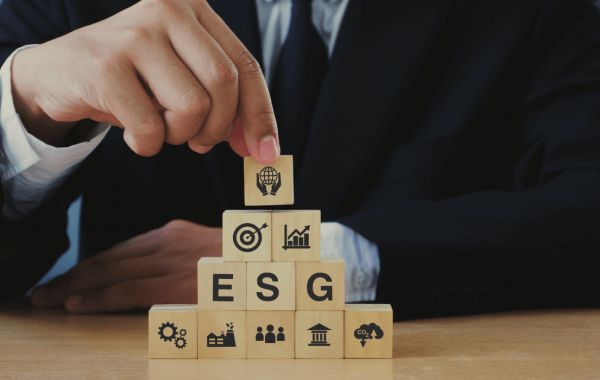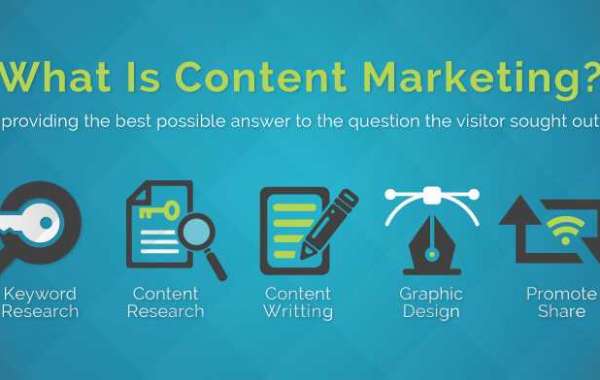As the world becomes increasingly focused on environmental sustainability, the implementation of Environmental, Social, and Governance (ESG) initiatives is gaining momentum in countries like Malaysia. ESG initiatives aim to minimize the environmental footprint and promote responsible business practices for a more sustainable future.
In Malaysia, a growing awareness of the need for ESG practices has paved the way for various waste reduction strategies across industries. This is driven by the recognition that businesses have a crucial role to play in mitigating environmental impact and addressing social issues.
ESG initiatives in Malaysia encompass a wide range of practices, including renewable energy adoption, waste management, corporate social responsibility, and collaboration among different stakeholders. These initiatives are not only driven by regulatory requirements but also by the companies' broader goal of integrating sustainability into their operations.
By implementing ESG initiatives and waste reduction strategies, Malaysian companies contribute to the preservation of the environment, reduction of greenhouse gas emissions, and improvement of social well-being. They also strengthen their brand reputation, attract socially responsible investors, and create positive impacts on the local communities.
Understanding ESG: Environmental, Social, and Governance
Environmental, Social, and Governance (ESG) principles have gained significant attention in the pursuit of a more sustainable future. ESG encompasses three interconnected pillars: environmental, social, and governance. By understanding the relevance of these pillars to waste reduction, we can unravel the key factors driving ESG initiatives in Malaysia.
Environmental Pillar
The environmental pillar of ESG focuses on the impact of business operations on the environment. It emphasizes the need for sustainable practices that minimize resource depletion, waste generation, and greenhouse gas emissions. Malaysian consultants are actively integrating renewable energy sources, such as solar panels, to power their operations efficiently and reduce reliance on fossil fuels. Additionally, they are embracing energy efficiency measures to optimize resource consumption and mitigate the environmental footprint associated with their activities.
Social Pillar
The social pillar of ESG emphasizes the importance of considering the social impact of a company's operations. This includes aspects such as community engagement, employee welfare, and corporate social responsibility (CSR) programs. Malaysian consultants recognize the significance of CSR in waste reduction efforts. They engage in initiatives that promote responsible waste management, educate communities about proper disposal practices, and contribute to the overall well-being of society.
Governance Pillar
The governance pillar of ESG focuses on the ethical and responsible management of a company. It involves transparency, accountability, and adherence to regulatory frameworks. Malaysian consultants integrate governance practices that ensure the efficient and ethical use of resources, including waste management. They adopt robust waste management systems, implement recycling programs, and embrace circular economy principles to minimize waste generation and ensure responsible disposal.
By aligning their practices with the three pillars of ESG, Malaysian consultants pave the way for effective waste reduction strategies. The integration of sustainability principles addresses not only environmental concerns but also promotes social responsibility and sound governance practices. These efforts contribute to a more sustainable and resilient future for Malaysia and set a positive example for businesses globally.
Renewable Energy Sources for Sustainable Operations
In the pursuit of minimizing their environmental footprint, Malaysian companies are increasingly recognizing the importance of utilizing renewable energy sources. By transitioning away from fossil fuels and embracing sustainable energy alternatives, these companies are not only reducing greenhouse gas emissions but also paving the way for a more sustainable future. Here are some key insights into the significance of renewable energy sources for sustainable operations, along with examples of Malaysian companies that have adopted such practices.
Advantages of Utilizing Renewable Energy
Utilizing renewable energy sources offers several advantages for businesses striving to reduce their environmental impact. Firstly, it helps to decrease reliance on fossil fuels, which contribute to air pollution and climate change. By harnessing energy from renewable sources such as solar, wind, hydro, and biomass, companies can reduce their carbon footprint and mitigate the negative effects of greenhouse gas emissions.
Additionally, renewable energy sources offer long-term cost savings. Although the initial investment for implementing renewable energy systems may be higher, the operational costs are significantly lower compared to traditional energy sources. This allows companies to save on electricity bills and improve their financial performance in the long run.
Malaysian Companies Leading the Way
Several Malaysian companies have embraced renewable energy sources as part of their commitment to sustainable operations. For example, IKEA Malaysia has installed solar panels on the roofs of their stores, generating clean energy to power their operations. This initiative not only reduces their reliance on the grid but also demonstrates their commitment to environmental sustainability.
Another prime example is the KLCC Petronas Twin Towers, which has integrated solar panels into the building design to harness solar energy. By utilizing renewable energy, the iconic landmark contributes to reducing carbon emissions in the heart of Kuala Lumpur.
Furthermore, many large companies in Malaysia have started purchasing renewable energy certificates (RECs) to offset their energy consumption. This allows them to support renewable energy projects and indirectly contribute to reducing their environmental impact.
Corporate Social Responsibility and its Impact on Waste Reduction
Corporate social responsibility (CSR) plays a crucial role in promoting waste reduction efforts and fostering a more sustainable future. Malaysian companies are increasingly embracing CSR principles and implementing initiatives that contribute to waste reduction. Here, we explore the concept of CSR and its impact on waste reduction, while providing examples of successful CSR practices in Malaysian organizations.
Understanding Corporate Social Responsibility (CSR)
At its core, CSR refers to an organization's commitment to operate ethically, contribute positively to society, and minimize its environmental impact. It involves integrating sustainability practices into various aspects of business operations. When it comes to waste reduction, CSR initiatives aim to mitigate the negative environmental impact caused by excessive waste generation and improper disposal.
Implementing Waste Reduction Strategies through CSR
Malaysian companies are taking proactive measures to reduce waste through CSR programs. Here are a few examples of successful initiatives implemented by Malaysian organizations:
- Waste Recycling Programs: Companies are setting up recycling programs to encourage the separation and recycling of different types of waste materials.
- Circular Economy Practices: Malaysian companies are adopting circular economy principles by implementing strategies that minimize waste generation and maximize resource efficiency.
- Responsible Disposal: Many Malaysian companies are ensuring responsible disposal of waste by adhering to proper waste management practices.
The Benefits of CSR-driven Waste Reduction
CSR-driven waste reduction initiatives bring multiple benefits to companies and society as a whole. By implementing effective waste reduction strategies, organizations can:
- Minimize environmental impact and contribute to a cleaner and healthier environment.
- Enhance brand reputation by demonstrating commitment to sustainability and responsible business practices.
- Reduce operational costs by optimizing resource utilization and minimizing waste disposal expenses.
- Drive innovation by seeking alternative, more sustainable methods for production and waste management.
Waste Management Best Practices
Effective waste management practices play a crucial role in minimizing the environmental footprint and promoting sustainability. In Malaysia, ESG consultants have been at the forefront of implementing innovative strategies for waste reduction. By adopting practices such as recycling, circular economy, and responsible disposal, these consultants have demonstrated their commitment to creating a cleaner and greener future.
Recycling: A Key Component of Waste Management
Recycling is a fundamental waste management practice that helps conserve resources and minimize the amount of waste sent to landfills. Malaysian consultants have been actively promoting recycling initiatives by encouraging businesses and individuals to separate recyclable materials from general waste. Through effective waste segregation and partnerships with recycling facilities, consultants help divert a significant amount of waste from landfills.
Embracing the Circular Economy
The circular economy is an essential concept that aims to minimize waste generation and maximize resource efficiency. Malaysian consultants have been advocating for the adoption of circular economy principles, which involve designing products and processes to facilitate reuse, repair, and recycling. By embracing the circular economy, businesses can reduce their reliance on finite resources and contribute to a more sustainable future.
Responsible Disposal: Proper Handling and Treatment of Waste
Proper disposal practices are crucial to prevent environmental pollution and safeguard public health. Malaysian consultants have been promoting responsible waste disposal, which includes the proper handling, treatment, and disposal of different types of waste. This entails adhering to regulatory requirements, encouraging the use of appropriate waste management facilities, and raising awareness among businesses and individuals about the importance of responsible waste disposal.
Collaborative Approaches for Effective Waste Management
Malaysian consultants recognize that effective waste management requires collaboration among various stakeholders. They have been fostering partnerships with businesses, government agencies, and local communities to develop comprehensive waste management strategies. By working together, these stakeholders can share best practices, pool resources, and collectively address the challenges related to waste management.
Collaboration and Partnerships for ESG Initiatives
Collaboration and partnerships play a crucial role in driving ESG initiatives and waste reduction efforts in Malaysia. By bringing together different stakeholders, including businesses, government bodies, non-profit organizations, and communities, a collective effort can be made towards achieving a sustainable future. Here are some key reasons why collaboration and partnerships are essential:
Leveraging Expertise and Resources
Collaboration allows for the pooling of expertise and resources from various parties involved. By working together, organizations can tap into each other's strengths and capabilities, leading to more effective and holistic ESG strategies. For example, a partnership between a consulting firm and a waste management company can combine their expertise in sustainable practices and waste reduction techniques, resulting in innovative solutions.
Driving Innovation
Collaboration opens up opportunities for innovation and the development of new approaches to tackle environmental challenges. By sharing knowledge and best practices, different stakeholders can learn from each other and find creative solutions to minimize the environmental footprint. This can include the exploration of new technologies, adoption of sustainable practices, and integration of ESG considerations into business operations.
Fostering Synergies
Partnerships create synergies among organizations working towards a common goal. By aligning their efforts, stakeholders can amplify their impact and achieve greater outcomes. For instance, collaborations between government bodies, corporations, and local communities can lead to the implementation of large-scale waste management projects or the establishment of recycling initiatives that benefit the entire society.
Influencing Policies and Regulations
Collaborative efforts have the potential to influence policies and regulations related to ESG and waste reduction. When different stakeholders come together with a unified voice, they can advocate for sustainable practices and push for necessary changes in the regulatory environment. This can create a supportive framework that encourages businesses to adopt ESG initiatives and waste reduction strategies.
The Role of Government and Policy Frameworks
The Malaysian government plays a crucial role in promoting and driving ESG (Environmental, Social, and Governance) initiatives and waste reduction efforts in the country. Through the implementation of relevant policies and regulations, the government aims to create a sustainable and environmentally responsible business environment.
Policies and Regulations
One of the notable policies introduced is the National Policy on the Environment (NPE). This policy provides a comprehensive framework for sustainable development by addressing key environmental issues such as pollution control, resource conservation, and waste management. The NPE encourages businesses to adopt environmentally-friendly practices and holds them accountable for minimizing their environmental footprint.
To support renewable energy adoption, the Malaysian government has also introduced the Renewable Energy Act. This act provides incentives and guidelines for companies to integrate renewable energy sources into their operations. By incentivizing the use of solar panels, wind turbines, and other renewable technologies, the government aims to reduce reliance on fossil fuels and decrease greenhouse gas emissions.
Collaborative Efforts
The government actively collaborates with industry stakeholders, non-governmental organizations, and international bodies to drive ESG and waste reduction initiatives. Through partnerships, knowledge sharing, and collective action, the government fosters a collaborative approach to address environmental challenges.
Sustainable Development Goals (SDGs)
As a signatory to the United Nations' Sustainable Development Goals (SDGs), Malaysia is committed to achieving specific targets related to environmental sustainability. The government aligns its policies and strategies with the SDGs, ensuring that its efforts contribute to the global agenda for a more sustainable future.
Enforcement and Compliance
To ensure effective implementation of ESG and waste reduction policies, the government enforces stringent regulations and conducts regular inspections. Non-compliance can result in fines, penalties, or legal repercussions, incentivizing companies to adhere to sustainable practices.
Future Direction
The Malaysian government continues to refine and strengthen its policies and frameworks to enhance the effectiveness of ESG and waste reduction initiatives. With a focus on sustainable development and environmental conservation, the government aims to create a favorable business environment that encourages responsible and eco-conscious practices.
Challenges and Future Trends in ESG and Waste Reduction
Implementing ESG (Environmental, Social, and Governance) strategies for waste reduction in Malaysia comes with its own set of challenges. However, despite these challenges, there are promising trends that indicate a positive future for ESG and waste reduction efforts in the country.
Challenges Faced by Malaysian Consultants
- Lack of Awareness and Understanding: One of the major challenges is the limited awareness and understanding of ESG concepts among companies and consultants. Many businesses are still unaware of the potential benefits and opportunities associated with ESG initiatives.
- Resistance to Change: Implementing ESG strategies often requires changes in organizational practices and mindset. Resistance to change from stakeholders can hinder the adoption of sustainable practices and waste reduction initiatives.
- Financial Constraints: For some companies, the financial burden associated with implementing ESG measures can be a significant challenge. The initial investment required for renewable energy projects or waste management infrastructure may deter companies from taking proactive steps.
Future Trends in ESG and Waste Reduction
- Collaboration and Industry Partnerships: Future trends indicate a growing emphasis on collaboration and partnerships among different stakeholders, including businesses, government entities, and NGOs. By working together, they can leverage resources, expertise, and networks to drive meaningful change.
- Integration of Sustainability in Business Operations: More companies are recognizing the importance of integrating sustainability into their core business operations. This trend includes incorporating ESG considerations into decision-making processes, supply chain management, and product life cycle stages.
- Government Support and Policy Frameworks: The Malaysian government plays a crucial role in supporting and promoting ESG and waste reduction initiatives. Implementation of favorable policies, incentives, and subsidies can encourage companies to prioritize sustainability and overcome financial barriers.
Conclusion
It is evident that ESG initiatives and waste reduction strategies play a vital role in driving a sustainable future in Malaysia. By integrating environmental, social, and governance practices into their operations, Malaysian consultants are leading the way in creating a positive impact on the environment and society.
The key takeaways from this discussion are:
- Commitment to ESG: Malaysian consultants are demonstrating their commitment to sustainability through the implementation of ESG strategies. These strategies encompass a wide range of practices, including renewable energy adoption, waste management best practices, and corporate social responsibility.
- Collaboration and Partnerships: The success of ESG initiatives in Malaysia relies on collaboration and partnerships among various stakeholders, including businesses, government agencies, and non-governmental organizations. By working together, these entities can drive collective action towards a more sustainable future.
- Government Support: The Malaysian government plays a crucial role in promoting ESG practices and waste reduction efforts. Through the implementation of policies and regulations, the government encourages businesses to adopt sustainable practices and provides support through subsidies and incentives.
- Challenges and Trends: While progress is being made, there are still challenges to overcome in implementing ESG and waste reduction strategies. These challenges include financial constraints, changing consumer expectations, and the need for continuous improvement. However, the emerging trends in the field, such as circular economy practices and renewable energy projects, provide opportunities for further advancement.
Continued efforts in ESG and waste reduction are essential for Malaysia to achieve a sustainable future. By prioritizing these initiatives, Malaysian consultants can contribute to environmental conservation, social impact, and economic growth, ultimately creating a better quality of life for current and future generations.







